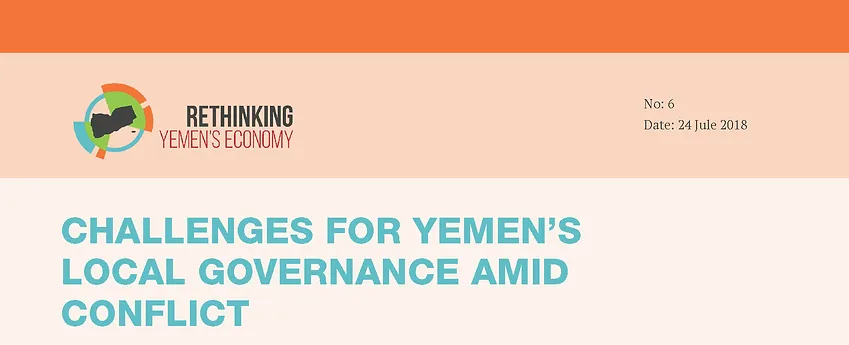INTRODUCTION
Local councils are among Yemen’s most important state institutions. Responsible for providing basic public services to millions of Yemenis, local councils represent official governance and the Yemeni state for much of the population. The intensification of the ongoing conflict between the internationally recognized government and the Houthis since March 2015, however, has heavily impacted funding and security for local councils, undermining their ability to provide services effectively in most areas of the country. The reduced capacity of local councils to function is cause for much concern as the conflict rages on and Yemen’s economic and humanitarian crises deepen.
With an aim to inform stakeholders on options for supporting local councils in the near and long term, this policy brief, which is based on a more extensive White Paper, provides insight into the current challenges that local councils face. The first section provides a view of how local governance throughout Yemen is evolving amid conflict and instability. As the conflict creates a political and security vacuum, non-state actors have stepped in to provide services at the local level. Despite the conflict’s negative impact on their ability to operate, however, local councils have acted to coordinate humanitarian aid and to mediate conflict at the local level. In the north, Marib governorate has pushed for greater local autonomy, and, like Hadramawt in the south, has achieved a degree of success in effective self-governance.
Regardless of how the conflict progresses, stakeholders in Yemeni governance must seek not merely to prevent local governance structures from collapse, but also plan in advance to enhance the capabilities of local councils in post-conflict scenarios. As such, the third section of this brief provides recommendations for local, regional and international actors to support local councils in the short term while building towards a longer-term post-conflict stability.
